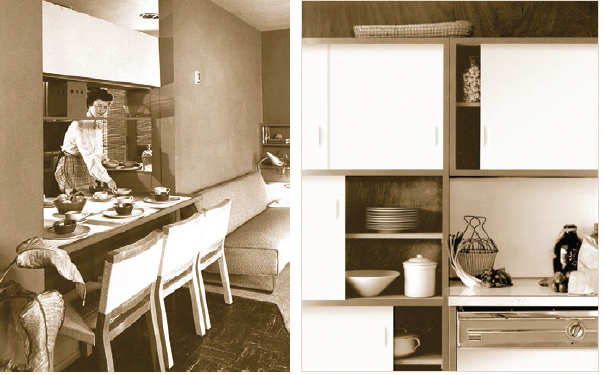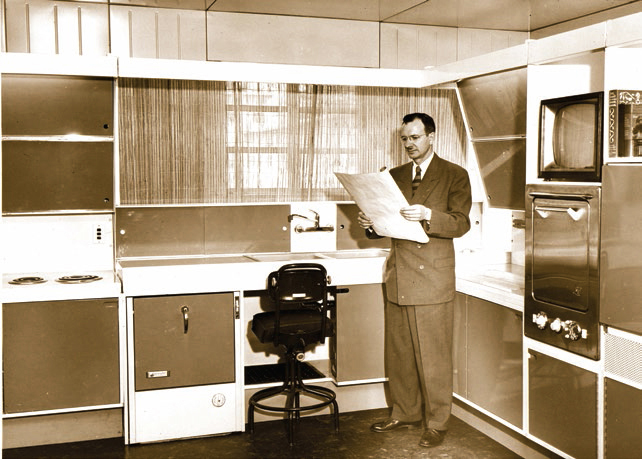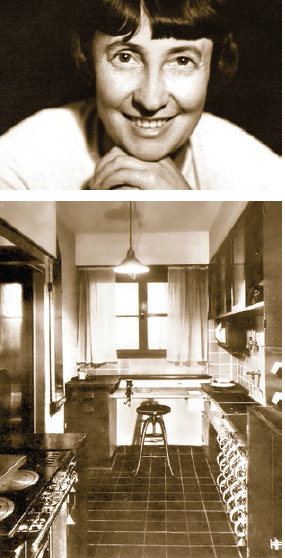Kitchen Liberation - Page 2
 |
|
|
Eichler Homes also boasted of "patented kitchen cabinets with removable sliding doors and no hardware to polish or clean."
The company played up their kitchen's efficiency too. It was compact, with cooktops, oven, and workspaces close to storage, designed to make cooking easier and faster, thus freeing up the modern woman for other, perhaps more productive tasks.
In this way, the open kitchen was part of the same movement that sought new labor-saving devices and materials—stand-alone freezers, blenders, mixers, Tupperware, Saran Wrap, the Ronco Chop-O-Matic ("all your onions chopped to perfection without shedding a single tear")—to reduce the tedious work of meal making.
Along with new kitchens and new tools, of course, came the most important change of all: new food.
'Packaged food cuisine' included dehydrated potatoes, Cheez Whiz (1952), Eggo waffles (1953), and frozen food, including Swanson TV dinners (1954), whose flavor, Laura Shapiro, author of Something from the Oven: Reinventing Dinner in 1950s America, described as "strangely metallic, as if tray and turkey were one."
 |
|
|
The question remains, though: Did the open kitchen, new devices, and foodstuffs help liberate women from drudgery? Or did they turn them into robots, pawns of an industrial food-processing and marketing complex?
"What the industry had to do," Shapiro wrote, "was persuade millions of Americans to develop a lasting taste for meals that were a lot like field rations."
To this end, the processed food industry labored to convince women that cooking from scratch was behind the times. Why learn to cook when the food processors have done it for you?
No one said it better than Poppy Cannon, author of the 1952 Can-opener Cookbook. She argued that even housewives who knew nothing about cooking could produce tasty meals with almost no effort, simply by following the directions that came with canned, dehydrated, and frozen foods.
"We want you to believe, just as we do," Cannon wrote, "that in this miraculous age it is quite possible—and it's fun—to be a 'chef' even before you can really cook."
 |
Arguing that modern innovations did indeed liberate women, conservative commentator B.K. Marcus wrote in 2016 that capitalism's production of refrigerators and dishwashers and the like allowed women to get out of the kitchen and into the modern workplace.
"By reducing the burden of domestic labor, [such devices] opened a world of options that the men in power may not have been as happy about," Marcus wrote in his essay, 'Capitalism Doesn't Care about Women, but It Does Liberate Them.'




